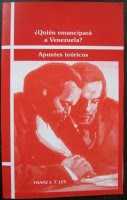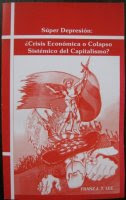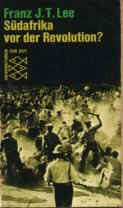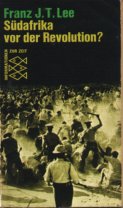Concerning the contemporary Bolivarian Revolution and the current Arab
Revolution in Africa
By Franz J. T. Lee
By recalling what has happened here in Venezuela nearly nine years ago (a failed
military coup and an oil sabotage orchestrated by the USA against Venezuela) and
by focusing on the latest political developments in North Africa and the Middle
East, we could note two interesting factors which both events have in common.
Both occur in the epoch of globalization, and by surpassing normal spatial and
temporal parameters, both appear as surprise, are unique, New. They appear at
dusk on the global horizon, at a time when it seems that the experiment man,
socialist man is becoming an earthly failure.
But, in the epoch of the total collapse of the capitalist world order:
* Are these sparks sufficient to set the whole global prairie on emancipatory fire?
Corporate destructive reality is progressively diminishing the chances of
emancipatory creative possibility.
* What could be still possible for the future of humanity, for future humanity
itself? The permanent world revolution?
Concerning the species man, this is a very serious philosophical question which
merits profound thinking, thought and action. In a brief commentary this is not
possible. Nonetheless, talking about the category 'possibility' its philosophic
roots we encounter in the works of the 'Aristotelian Left', for example, in the
materialist philosophy of Avicenna and Averroes, who lived during the 'Dark
Ages' in North Africa, the Mideast and Persia.
* Like the October Revolution, like the Algerian Revolution, could the Arab and
Latin American emancipatory endeavors also fail?
* Could they lose their creating and creative sparks, their sparkling, twinkling
novelty, the anti-capitalist New?
* Could they degenerate into corrupt practice and oppotunist ideology?
Both historical events never happened before anywhere and they will never repeat
themselves again anywhere, as such, they are unique, are emancipatory.
Surely, very often we indulge in wishful thinking or are carried away by
political daydreams, by emotional masses in motion, as such, generally we are
tempted to see 'revolutions' everywhere, here an African revolution, there an
Arab Revolution, all over a Christian revolution, without ever having thought
about the possibility of emancipatory reality and about real human emancipation.
Let us just comment on a few aspects of this crucial social problem.
* Theoretically, philosophically, what is the difference between possibility and
reality? Let us say it lovingly, in ancient Greek.
Often desired things, beautiful relations or loving people that we daydream
about, that we are desperately looking for across continents, do not appear on
the spur of the moment, because they are still in the Aristotelian "process of
ta symbebekóta to kata to dynatón to dynamei on. In other words, what we look
for, the loved one, the revolution, are not born as yet.
What does this mean? It simply describes the arduous materialist process of
being, of becoming and of becoming being, the process from possibility to
reality in all walks of terrestrial life.
According to Aristotle, the materialist, cosmic process encompasses the
political process from the village to the polis, to the State. Of course, then
the State was the ideal ancient slave-owning State; once it had materialized
itself, it ended up to be the most perfect form of 'human communism'. However,
only the slave owning middle class, the ruling elite, had the social privilege
of administrating this perfect polis. (1)
In globalization, the perfect State, the most evil state ever constructed would
be the 'One World Government'.
As indicated, across the Aristotelian 'Left', across North Africa, the Mideast
and Persia, Arab and African philosophers like Avicenna, Averroes and Avicebron
were disseminating a dynamic natural materialism based on natura naturata and
natura naturans, created, creating and creative hylozoism in medieval Antiquity.
This transillumination eventually entered bourgeois philosophy in the epoch of
the Renaissance and was developed further by philosophers like Giordano Bruno.
Ironically, Africa and the Middle East did not only 'discover' America long
before Christopher Columbus, they hade a decisive contribution to bourgeois
materialist philosophy.
Later Hegel will claim that Africans do not exist within the framework of
history. Montesquieu was convinced that Africans do not possess a 'soul', not
even a 'black' one and Voltaire, who was involved in the African slave maafa,
(Swahili, concept for a great disaster, for the African Holocaust), pejoratively
will state that 'negroes' have no intellectual capacity and that they serve
neither for 'the use nor for the abuse of philosophy'. If philosophy really
should be the love (filia) for wisdom (sophia), well, then the afri peoples of
the North African region already over ten millennia ago very wisely and vividly
were in love with Mother Nature, that is, Africans were 'civilized' long before
Europe had reached the barbarous stage of accumulative, capitalist ta
symbebekóta (Aristotle), that is, had entered the state of coming-into-possibility.
What is happening currently in North Africa is that the emancipatory spirit of
the Afri peoples who had lived there ten millennia ago are now claiming their
historic truth, human dignity and emancipation.
On our minute planet Earth, on our one and only natural, cosmic space-ship en
route towards new, unknown realms of creative, living emancipation, in our
struggles, in our class struggles, scientifically and philosophically we, as
strangers to the New, have to give it welcome that "there are more things in
heaven and earth, Horatio, than are dreamt of in your philosophy." (Shakespeare,
Hamlet) (2) This is the tird factor which the Bolivarian and the Arab
anticipatory processes have in common.
Philosophically expressed, In Africa, in daily life, in our perpetual 'praxical'
and theoretical class struggles, there exist a myriad of simple objective levels
and exist countless complex subjective degrees, however, these are just the
anticipatory preconditions that should enable us to pass and surpass
unimaginable, vague 'transjective mensions' of human being, human existence and
human transcendence. Only as human trinity could we ban capitalism forever.
This simply means that Mother Africa, the creator and womb of human life, has to
recapture her erotic and exotic human trinity which capitalist colonial
barbarism has wrested apart and has replaced it with divine patriarchal
monotheism. With the brutal construction of the imperialist world market, for
Africa life itself was converted into an earthly hell, into the greatest maafa
of all times.
Nonetheless, it is pertinent to note that in severe times like the current one,
the 'future' of mankind becomes truncated, opaque and vague, everywhere all
kinds of 'solutions' appear in dispersed forms; none of them seem to be able to
change the mortal route of the global, fascist Titanic. However, once upon a
time, ten million years ago, ... after three natural climatic maafa and the
destruction of 90 percent of planetary life, for example, of the dinosaurs, ...
Mother Africa gave birth to Proconsul africanus, the root stock of contemporary
women, men and primates.
So often did Mother Africa preserve her very own cosmic creations, hence, why
can Africa and Africa in Venezuela not resolve or halt the coming super maafa
caused by Lilliputian, myopic, patriarchal megalomania?
When shall we ever learn what is anti-capitalism?
After the Neanderthal Man, after Homo sapiens, who or what will come next?
Also this is 'evolution', is 'progress' towards higher forms, as explained by
Charles Darwin or Michail Bakunin. Only Rousseau warned that we are going
precisely the other way, towards involution.
Continuing with the anticipatory sublime, surely, also in Africa, emancipatory
forces permanently are being created, as a result of the sharp ongoing planetary
contradictions and relations, -- but also of the corresponding social
antagonistic forces, of material affirmations, social negations and
transvolutionary 'superations'. Internationally, in globalization, in the
collapse of the mode of destruction of capitalism, in potentiality and potency,
in latency and tendency, in embryo, the parasitic days of capitalism are
numbered. We are in the era of barbarism already. We just have Hobson's choice,
as could be witnessed by the current heinous capital and cardinal crimes against
nature and humanity, committed by the governments of the United States and the
European Union.
Apart from the current valiant African freedom struggles against global
imperialism, our emancipatory dawn, uhuru (Odinga Oginga), that is, freedom, is
not born as yet. In fact, currently for Africa it is the darkest before dawn.
Historically, determined by the tendential and latent laws of the anarchic,
productive development of world capitalism, very early appeared phantasmagorias
of the best possible State to safe-guard and foster the 'peaceful' accumulation
of capital, profits, privileges, hegemony and power. Centuries later a
transhistoric fata morgana became a concrete, cruel reality.
In Europe, for example, such was the case of Maquiavelli's 'Prince', of Thomas
Hobbes' 'Leviathan' and of George Orwell's 'Big Brother' -- these past
nightmares, these possible State monstrosities of yesterday progressively are
becoming realities in the post-Orwellian epoch of globalization or global
fascism. Now the ruling power elites are dreaming about their 'one world
government', about total control.
The tables are turning in Africa. The theocratic, feudal and neocolonial elites
are trembling, they sense their inexorable demise. It is high time to transcend
the slave maafa with liberatory ujamaa, with familyhood; to annihilate apartheid
with socialist ubuntu, with communalism, to transform 'not yet uhuru' into real
'menschliche Emanzipation', into real 'human emancipation' (Marx). Concerning
Venezuela, our comrades, to whom this commentary is dedicated, urgently we have
to accelerate our transcendence from theology to philosophy, from pro-capitalism
to anti-imperialism, practice to praxis, from ideology to theory, from
revolution to emancipation.
Footnotes:
(1) See: Aristotle, Politeia, IV, 11, 1295 b 1ff.
(2) See: Acto I, Escena 5.
franz@franzlee.org.ve













No comments:
Post a Comment